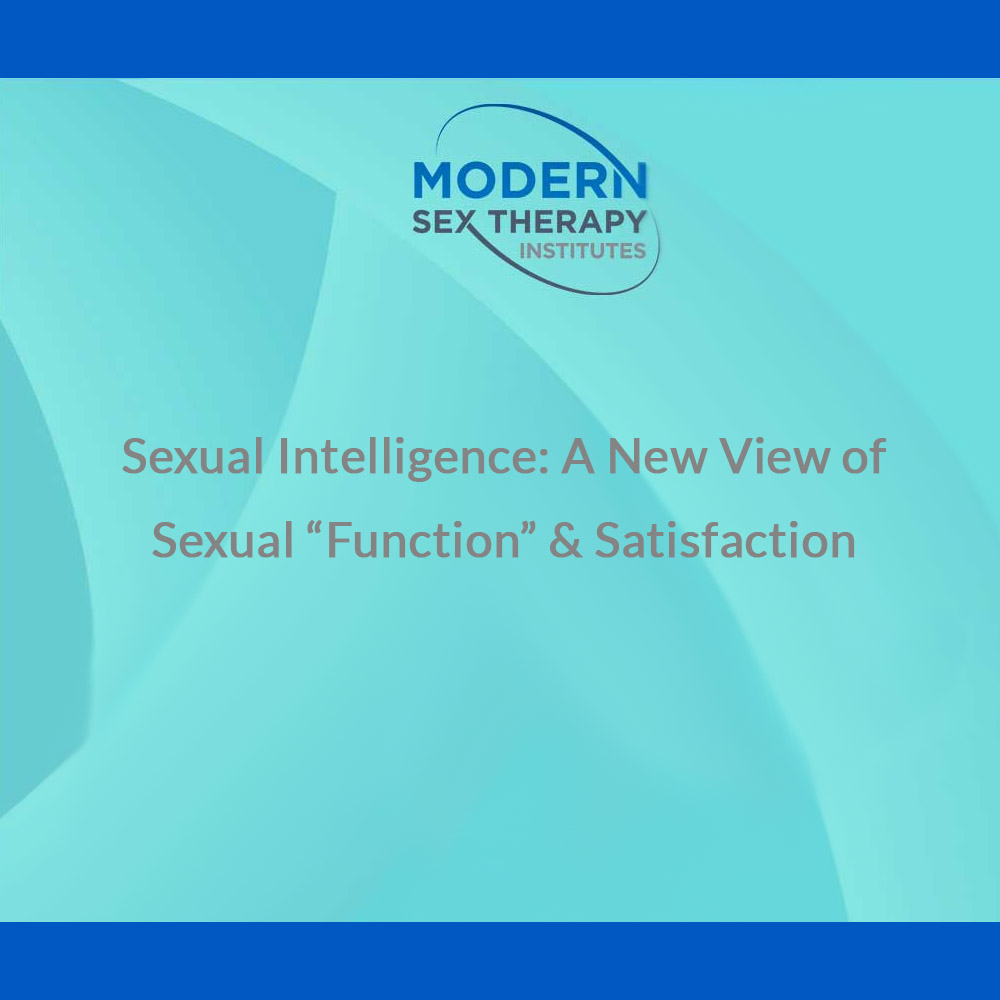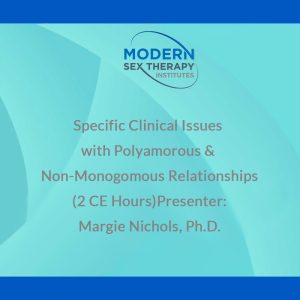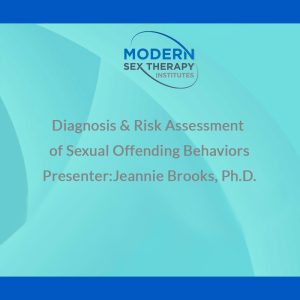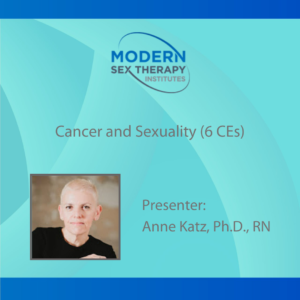Sexual Intelligence: A New View of Sexual “Function” & Satisfaction
$160.00
4 CE Hours
Presenter: Marty Klein, Ph.D
Recorded workshop available via video on demand
What do most people say they want from Sex? Some combination of pleasure and closeness. But during sex most people typically focus on how they look, smell, and sound; obsess on what their partner is thinking; try to manage distracting thoughts & feelings; and most of all, attend to their performance.
That leads exactly to what so many people fear: sexual “dysfunctions” like erection, orgasm, or desire problems. Therapists and self-help books can make things worse, because they’re trying to improve “functioning”—which is exactly wrong. Better friction doesn’t give people what they really want from sex: a sense of relaxation, playfulness, self-acceptance, competence, and connection. Erections and lubrication don’t guarantee desire or satisfaction. And so treating people’s genitalia is typically the wrong approach to enhancing their passion or pleasure.
In this seminar we’ll examine:
~ How to help people identify the good reasons they don’t desire or initiate sex;
~ How people construct culturally-appropriate sexual narratives; how these narratives undermine their pleasure and intimacy; and how we can help patients see and change them;
~ How to support people in making the transition from lust-driven sex to adult eroticism—and how to help people confront the existential issues that arise when they do;
~ How we can help people discover what their authentic sexual desires actually are, and how they can share these with a partner;
~ How to guide patients into a model of sexual engagement and satisfaction that does not focus on sexual “function” and “dysfunction.”
Learning Objectives: At seminar’s completion, participants will be able to:
1. Discuss patients’ and couples’ narratives about their sexuality
2. Assess why people don’t desire or initiate sex
3. Describe an alternative to the function-dysfunction model of sexuality
4. Describe how you would explain to clients how to discover and discuss their authentic sexual interests
5. List 3 reasons why orgasm is not the most important part of sexual experience
6. Describe why reassuring patients that they’re sexually normal can undermine rather than empower them
Time Outline
- 30 minutes
- Introduction; What do people say they want from sex?
- 30 minutes
- Changing patients’ relationship to sexuality
- 30 minutes
- Assumptions & narratives about sexuality—patients’
- 30 minutes
- Assumptions & narratives about sexuality—therapists’
- 30 minutes
- Sexual “function,” “dysfunction,” and conditions for enjoyable sex
- 30 minutes
- Discussing & evaluating patients’ sexual practices
- 30 minutes
- Enhancing Sexual Intelligence
- 30 minutes
- Summary & questions
Speaker Bio:
Marty Klein, PhD has been an MFT and Certified Sex Therapist for 39 years. A founding editorial board member of the Journal of Porn Studies, his recent book (his 7th) is His Porn, Her Pain: Confronting America’s PornPanic With Honest Talk About Sex. Marty has trained tens of thousands of professionals in human sexuality in over 40 countries; audiences invariably describe his workshops as thought-provoking, down-to-earth, and entertaining.
Marty appears regularly in national media such as The New York Times, National Public Radio, and the Daily Show. Regularly called upon to give expert testimony in human sexuality in state and federal courts, he recently gave two Congressional briefings on evidence-based sex education. His award-winning Sexual Intelligence blog is at www.SexEd.org.
References
Cristelle T. Audet (2011). Client perspectives of therapist self-disclosure: Violating boundaries or removing barriers? Counselling Psychology Quarterly, 24:2, 85-100, DOI: 10.1080/09515070.2011.589602
Eva-Maria Frittgen and Joschka Haltaufderheide (2021). ‘Can you hear me?’: communication, relationship and ethics in video-based telepsychiatric consultations. Journal of Medical Ethics 2021; 48 22-30 Published Online First: 05 Oct 2021. doi: 10.1136/medethics-2021-107434
Gola, Mateusz, Karol Lewczuk and Maciej Skorko (2016): What Matters: Quantity or Quality of Pornography Use? Psychological and Behavioral Factors of Seeking Treatment for Problematic Pornography Use. Journal of Sexual Medicine, v13#5, 815-824. https://doi.org/10.1016/j.jsxm.2016.02.169
Kohut, Taylor, William A. Fisher and Lorne Campbell (2017): Perceived Effects of Pornography on the Couple Relationship: Initial Findings of Open-Ended, Participant-Informed, “Bottom-Up” Research. Archives of Sexual Behavior v46, 585–602. https://doi.org/10.1007/s10508-016-0783-6
Velurajah, R., Brunckhorst, O., Waqar, M. et al. Erectile dysfunction in patients with anxiety disorders: a systematic review. Int J Impot Res 34, 177–186 (2022). https://doi.org/10.1038/s41443-020-00405-4
Whelan, Georgina and Jac Brown (2021): Pornography Addiction: An Exploration of the Association Between Use, Perceived Addiction, Erectile Dysfunction, Premature Ejaculation, and Sexual Satisfaction in Males Aged 18-44
Journal of Sexual Medicine, v18#9, 1582-1591. https://doi.org/10.1016/j.jsxm.2021.06.014
Michael Castleman: Sizzling Sex for Life (2021)
New York, NY: Skyhorse Publishing
Kathryn Hall & Yitzchak Binik: Principles and Practice of Sex Therapy (2020)
Guilford, CT: Guilford Press
Dagmar Herzog: Cold War Freud (2018)
Cambridge, London: Cambridge University Press
Marty Klein: His Porn, Her Pain (2016)
Santa Barbara, CA: Praeger Publishing
Laurie Mintz: Becoming Cliterate (2018)
San Francisco: HarperOne






